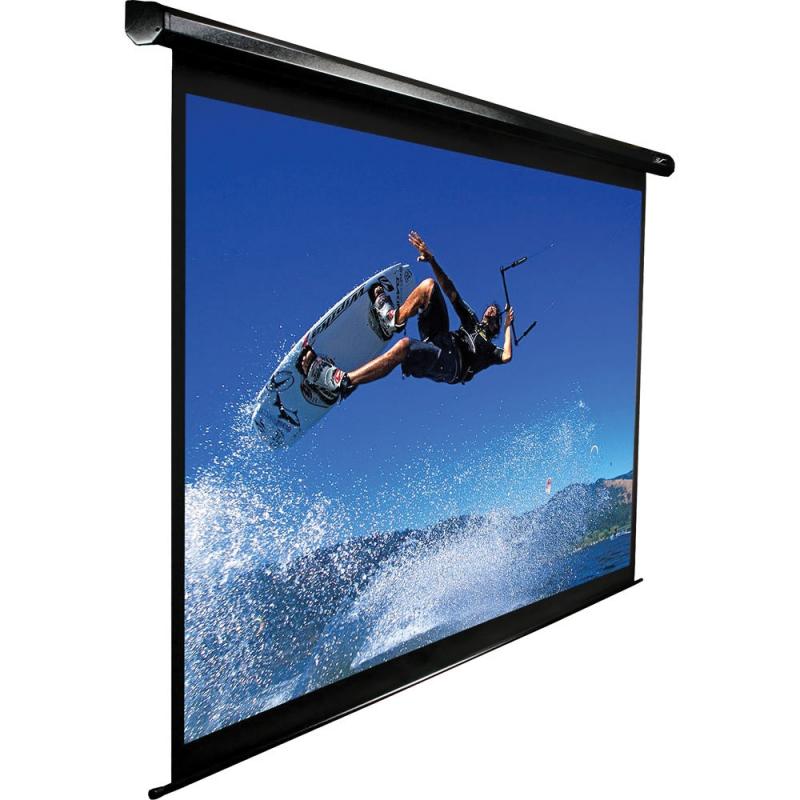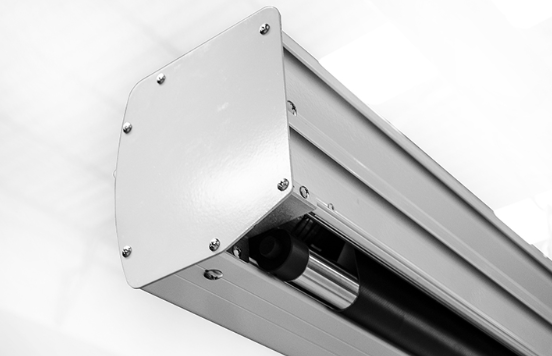Projector Screen vs. TV: Which Is Better For Your Business?
By hqt | 24 4 月 2023
Looking for the best display option for your business? In this comprehensive blog, we compare projector screens vs. TVs and explore the benefits and drawbacks of each option.
And we will discover why a projector screen may be the better choice for your business and learn how to choose the right screen and set it up properly for optimal performance. If you are interested in this, please read on!
When it comes to choosing a display for your business, the decision often comes down to two options: a projector screen or a TV. Both have their pros and cons, and the right choice depends on a variety of factors. In this article, we’ll take a look at the benefits and drawbacks of each option to help you make an informed decision.
One of the biggest advantages of a projector screen is its size. With a projector screen, you can easily create a large image that can be seen by everyone in the room. TVs, Educorpus on the other hand, are limited by their size, and even the largest TVs have a relatively small screen size compared to a projector screen.
In terms of resolution, TVs generally offer a higher resolution than projector screens. However, this is only true for smaller screen sizes. Once you start looking at larger screen sizes, the difference in resolution becomes less noticeable.
When it comes to cost, projector screens are generally less expensive than TVs. A high-quality projector screen can be purchased for a fraction of the cost of a large, high-end TV.
In addition, projector screens are often easier to install and maintain than TVs, which can require more complicated wiring and mounting systems.

One of the major advantages of a projector screen is its portability. A projector screen can be easily moved from room to room or even taken on the go, making it a great option for businesses that frequently need to set up presentations in different locations.
In contrast, TVs are generally less portable and require a dedicated mounting system or stand to be set up in a new location.
Another factor to consider when choosing between a projector screen and a TV is the lighting conditions in the room. Projector screens perform best in dark or dimly lit rooms, as bright light can wash out the image and reduce its clarity.
In contrast, TVs perform well in any lighting conditions, as they produce their own light and are not affected by external light sources.
Maintenance is another factor to consider when choosing between a projector screen and a TV. Projector screens are generally easier to maintain than TVs, as they don’t have internal components that can break down or require replacement.
In addition, the screens don’t suffer from the same issues as TVs when it comes to burn-in, which can occur when static images are displayed for long periods of time.
When it comes to an overall versatility, a projector screen is the clear winner. With a projector screen, you can easily display a variety of different types of content, from videos and images to presentations and documents.
In contrast, TVs are generally limited to displaying video content and are not as well-suited for displaying text or other types of visual content.
Based on the factors we’ve discussed, it’s clear that a screen is the better choice for most businesses. With its larger size, lower cost, and greater portability, a projector screen is an excellent option for businesses that need to display a variety of different types of content in different locations.
However, there are some situations where a TV may be a better choice. If you need to display high-resolution video content in a brightly lit room, for example, a TV may be a better option.
Ultimately, the right choice depends on your specific needs and budget. Consider the factors we’ve discussed and weigh the pros and cons of each option before making a decision.
If you’re looking for a high-quality projector screen for your business, the Large-size motorized projector screen from Xiong-Yun Audio-Visual is an excellent option to consider.
With sizes ranging from 180-350 inches, this projector screen is suitable for large conference rooms or auditoriums, making it perfect for businesses that need to present to a large audience.

The EC series offers various screen surface options, including HD/4K matte white fabric, 3D silver fabric, woven fiber acoustically fabric, and perforated PVC acoustically fabric, which provides the flexibility to choose a material that best suits your business needs.
The EC series is a motorized screen that can be remotely controlled using IR or RF. This makes it easy to raise or lower the screen when needed. Additionally, the two-piece casing design provides convenience for maintenance and debugging.
The EC series is made with high-end aluminum housing, which makes it durable, fashionable, and graceful. The automatic smoothing screen structure ensures a flat screen surface, even in large sizes. The aseismic design reduces vibration and noise, improving the mechanical life of the screen.
If you’re in the market for a high-quality projector screen that offers excellent durability and performance, the Large-size motorized projector screen from Xiong-Yun Audio-Visual is a great choice. With a range of sizes, screen surfaces, and remote control options, this projector screen can meet the needs of many different types of businesses.
In conclusion, while both screens and TVs have their pros and cons, a projector screen is often the better choice for businesses. With its larger screen size, lower cost, and greater versatility, a projector screen is an excellent option for businesses that need to display different types of content in different locations.
When choosing a better one, consider factors such as screen size, material, gain, aspect ratio, and mounting options. By following these tips and setting up your screen properly, you can create a high-quality display that will enhance your presentations and improve communication within your organization.
Related Info
MEMBER
ProductsSUBSCRIBE
Get information of our newest products and promotions
